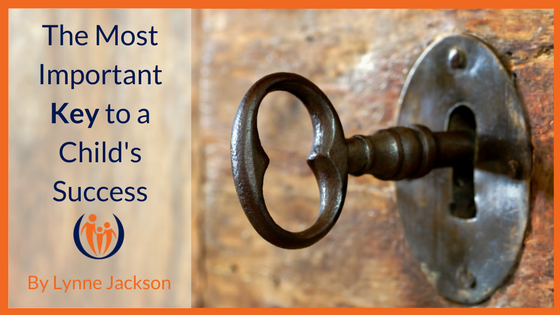
The Most Important Key to a Child’s Success
Pretty much every parent wants their children to succeed in life.
When talking about teaching kids to be successful, parents often want to jump right to tactical issues like chores, homework, respect, and obedience. These are important issues, and we’ve written about them elsewhere. But they are not the most important.
The most important — more important than chores or good grades or even obedience — is that children know who they are and where their value comes from. In other words, what really matter are the messages our kids hear that over time begin to form their identity.
Kids receive messages about themselves all the time, from us and others, whether we communicate them on purpose or not. But when we are intentional about the messages we send our children, we can help them begin to build a strong foundation of identity in Christ. Rather than being rooted in the need for our approval, or the approval of friends and peers, we can teach kids to instead be rooted in this truth from Ephesians 2:10: “For we are GOD’S WORKMANSHIP, created in Christ Jesus to do good works, which God prepared in advance for us to do.”
In our family, we frequently talked with our children about what was truly important in life – a person’s heart and character — and practiced identifying and rejecting false messages about where value comes from. We looked for creative ways to communicate that they were loved regardless of their performance. We even gave them silly “pop quizzes,” such as, “Wow, good report card! But does that make you any more valuable?” (“No!”) “You look beautiful in that dress. Do you think I love you more?” (“Of course not!”)
When our daughter Bethany turned eleven, I bought her a teen-girl magazine. I wanted to be ahead of the game in talking about adolescent issues, instead of doing damage control after she absorbed the misguided ideas of her peers! We looked through the articles that were filled with tips on makeup, diets, and catching a boyfriend and identified the messages communicated by each of the articles about where people get value and what’s important. Then we discussed how that measured up to God’s truth.
As a high schooler, Bethany chose excellent friends, enjoyed fashion and makeup occasionally for the fun of it, and felt sorry for kids who are trapped by the need to impress others. Once she challenged a popular, appearance-conscious friend to try coming to school without makeup. When the girl hesitantly showed her face the next day Bethany announced, “You look beautiful without makeup and we love you just as much!” It occurred to me that her message to this girl was the perspective we had thoughtfully and persistently communicated to her from a young age.
The specific key messages each child needs will vary somewhat based on age and unique personality. For example, children who struggle with a learning disability may need to loudly and clearly hear the message that God created them in the perfect way for the plans he has, regardless of how school goes for them. Children who are introverts (in our culture that values extroversion) may need to learn that God designed and values their thoughtful, quiet, and sensitive nature. The youngster who loves working with his or her hands but struggles to sit still in class may need extra opportunities to build or fix things. He or she will need to hear that this special gift can be a great blessing to the world.
Behavior grows from identity, and identity is built little by little over time by the messages we hear about ourselves. So speak messages of joy and purpose into your children and help them to build their identity on God’s truth.
Apply It Now:
- Picture each one of your children on Jesus’ lap. He looks in their eyes and makes two or three key statements to each child. What would he say? (“Child, you are _____!”) If you’re having trouble, check out our Four Powerful Messages All Children Long to Hear.
- What are some ways you can persistently communicate those messages in everyday situations?
- For a fun activity to teach kids about value, check out How to Teach Kids Value with a $20 Bill.
This post is an excerpt from our book, How to Grow a Connected Family.
Sign up below to receive a weekly dose of encouragement straight to your inbox:


